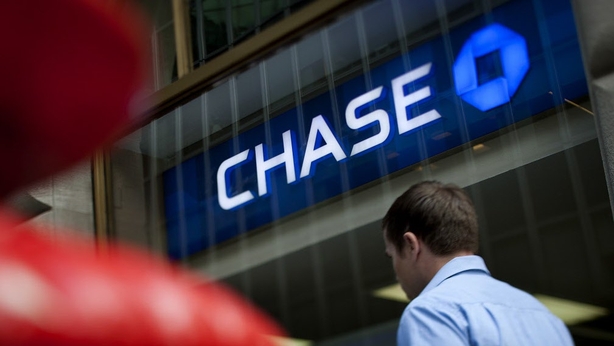JPMorgan Chase & Co, the biggest US bank by assets, today reported a 6.7% drop in quarterly profit.
The bank said that costs to cover possible sour loans to troubled shale oil companies rose, while revenue from trading and investment banking declined.
However, both earnings per share and revenue beat analysts' lowered expectations.
JP Morgan Chase's net income fell to $5.52 billion in the first quarter ended March 31, from $5.91 billion a year earlier. On a per-share basis, earnings fell to $1.35 from $1.45.
Analysts had expected earnings of $1.26 per share, according to Thomson Reuters I/B/E/S.
Total revenue fell 3% to $24.08 billion, beating the average estimate of $23.4 billion, while revenue from fixed-income trading - often JPMorgan's most volatile business - fell 13.4% to $3.6 billion.
JPMorgan is the first US bank to report results since the Federal Reserve's decision in December to raise interest rates by 0.25 percentage points, the first hike in nearly a decade.
Bank of America and Wells Fargo, the second and third-biggest US banks, report tomorrow.
A slide in commodity and oil prices, a slowdown in China, near-zero interest rates, mounting regulatory costs and hefty capital requirements have set up the banking industry for its worst start to a new year since the 2007-2008 financial crisis.
And while stock market activity picked up in March, that was not enough to make up for weak trading volumes during a volatile January and February.

The bank said its investment banking revenue fell 24.5% to $1.23 billion, even though JPMorgan topped the global league table with $1.22 billion in fees during the quarter, according to Reuters data.
Industry-wide, investment banking fees fell 29% in the three month period, the slowest first quarter since 2009.
Financial stocks were the worst performers in the S&P 500 index in the first three months of 2016, falling 5.6% compared with the overall index's rise of 0.8%.
JPMorgan's stock fell 10.3% in the period - but the shares of its five big US rivals fell by even more.
The bank said today that its total non-interest expenses fell 7% to $13.84 billion, helped by lower legal costs.
Like other US banks, JPMorgan has resorted to aggressive cost controls to underpin earnings over the past several quarters as revenue growth remains sluggish.

